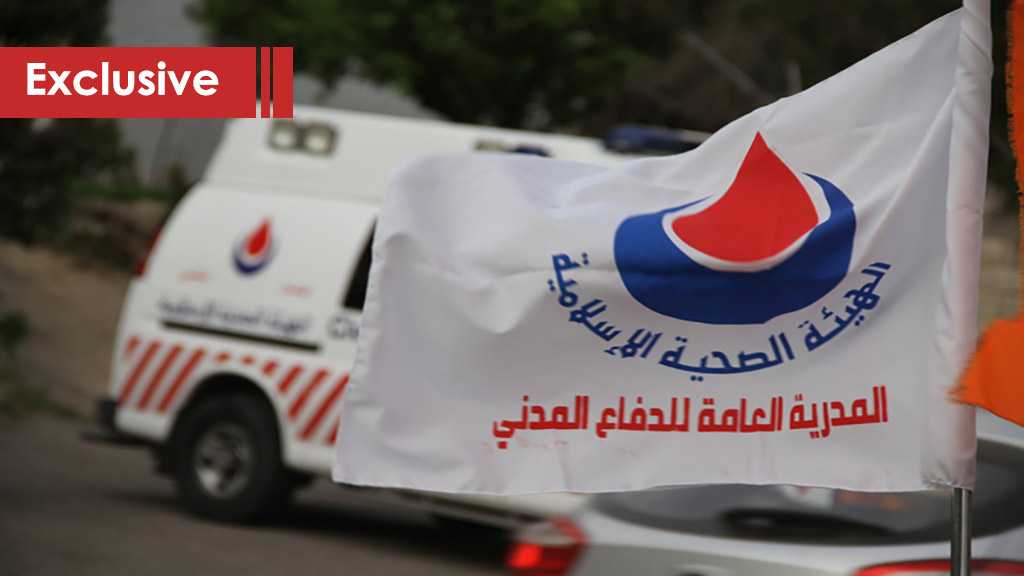
The Islamic Health Society’s Civil Defense: Prepared, Putting Capabilities at the Disposal of the Health Ministry

By Al-Ahed Staff
Beirut - Ever since Lebanon’s Minister of Health Hamad Hassan announced the introduction of public safety measures to combat the spread of the coronavirus, the Civil Defense of the Islamic Health Society has been working tirelessly to implement them in various parts across the country.
A central crisis cell was formed to respond to the virus and its repercussions. Crisis cells were also formed within all directorates: the first southern area, the second southern area, the Beirut directorate, the Bekaa directorate in addition to cells in each village that coordinate with local municipalities and unions.
Operating at a war-like state of preparedness, the civil defense works at various levels to curb the outbreak of the new coronavirus.
The Director General of the Islamic Health Society's civil defense, Adnan Muqaddem, outlined to Al-Ahed the most important points of focus in the framework of the plan against the virus.
He revealed that 30 ambulances have been prepared to transport those infected or suspected cases.
"We are in the process of completing the preparation of 100 other ambulances and isolating them from the inside in anticipation of any development regarding the coronavirus," Muqaddem said.
Muqaddem confirmed that “after the call of Hezbollah’s Secretary General, His Eminence Sayyed Hassan Nasrallah, we put all our capabilities at the disposal of the minister of health and the Lebanese government. We, then, trained workers and paramedics and provided them with the necessary equipment. We are currently working to equip ambulances with 20 respirators. With that, we will have 40 vehicles fully equipped with respirators and dedicated to transporting those infected or suspected cases.”
The role of the Islamic Health Society's general directorate of civil defense was not limited to equipping ambulances and providing training on methods of prevention. It also trained civil defense employees and volunteers on how to engage in disinfectant operations.
Within the framework of the plan to combat the virus, the Islamic Health Society's civil defense helps municipalities and unions spray chlorine to disinfect streets, work centers and institutions as well as places of worship, including mosques and churches.
Since the beginning of the health crisis, the civil defense transported suspected cases to health centers for medical examination. From there, the patients were either sent into quarantine or transferred to the state-run Rafik Hariri University Hospital. The civil defense teams are in constant contact with the concerned parties and follow up on those who are self-isolating or who are vulnerable to any infections.
In a proactive step, the civil defense is training and equipping special centers for the burial of coronavirus victims because there are very special and sensitive measures that must be taken to prevent the transmission of infections from the dead to the living.
Muqaddem asserted that the civil defense is coordinating fully with the ministry of health.
"We put all our capabilities and equipment at the disposal of the Lebanese ministry of health and the government," Muqaddem said. "We are fully prepared to equip up to 300 ambulances to transport the infected cases if it was required."



